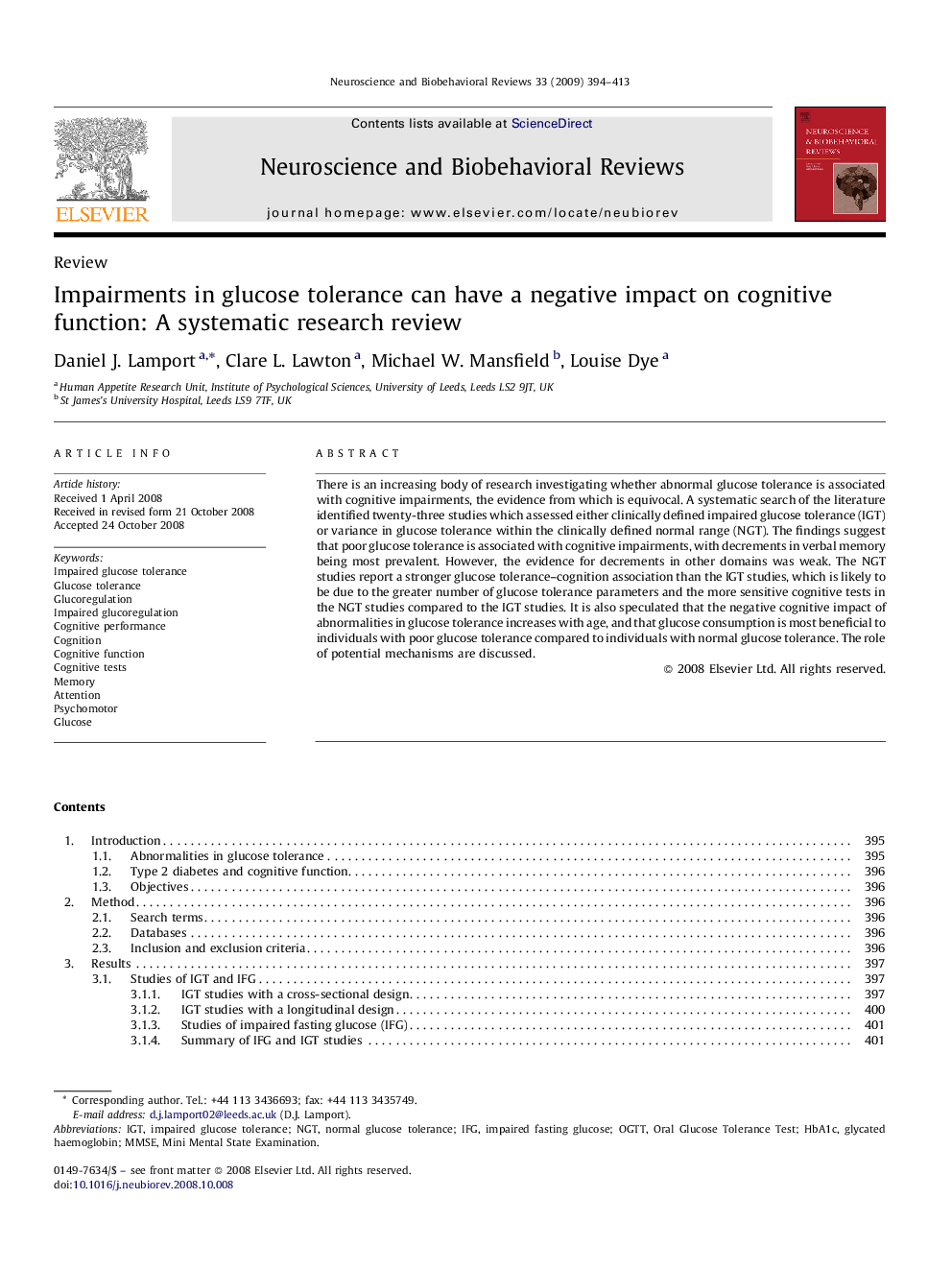| کد مقاله | کد نشریه | سال انتشار | مقاله انگلیسی | نسخه تمام متن |
|---|---|---|---|---|
| 938177 | 924591 | 2009 | 20 صفحه PDF | دانلود رایگان |

There is an increasing body of research investigating whether abnormal glucose tolerance is associated with cognitive impairments, the evidence from which is equivocal. A systematic search of the literature identified twenty-three studies which assessed either clinically defined impaired glucose tolerance (IGT) or variance in glucose tolerance within the clinically defined normal range (NGT). The findings suggest that poor glucose tolerance is associated with cognitive impairments, with decrements in verbal memory being most prevalent. However, the evidence for decrements in other domains was weak. The NGT studies report a stronger glucose tolerance–cognition association than the IGT studies, which is likely to be due to the greater number of glucose tolerance parameters and the more sensitive cognitive tests in the NGT studies compared to the IGT studies. It is also speculated that the negative cognitive impact of abnormalities in glucose tolerance increases with age, and that glucose consumption is most beneficial to individuals with poor glucose tolerance compared to individuals with normal glucose tolerance. The role of potential mechanisms are discussed.
Journal: Neuroscience & Biobehavioral Reviews - Volume 33, Issue 3, March 2009, Pages 394–413